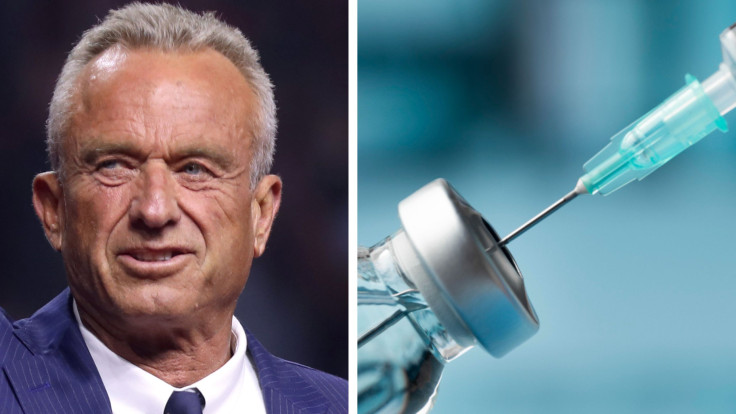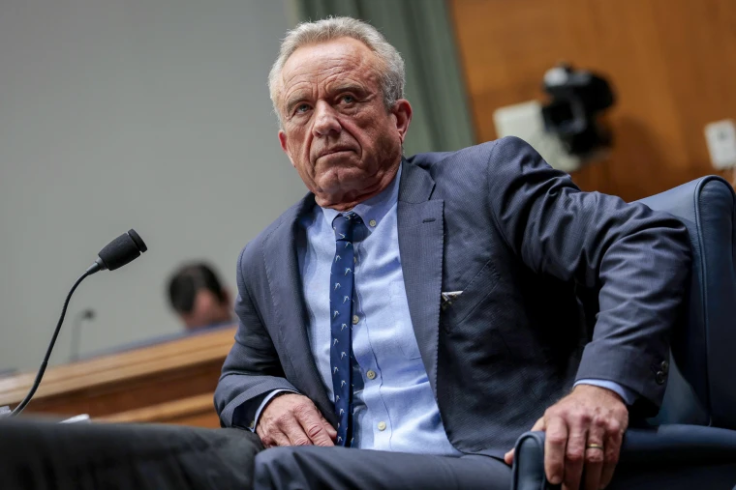Why RFK Jr.'s Team Hit Pause on Infant Vaccine Vote—Experts Divided
A controversial pause on newborn vaccine guidance sparks debate among doctors, scientists, and public health officials

A newly restructured US vaccine advisory committee has postponed a decision on whether to delay the hepatitis B birth dose for babies born to mothers who test negative, after a two-day meeting which ended today.
The Advisory Committee on Immunisation Practices (ACIP), whose members were replaced in June by Health and Human Services (HHS) Secretary Robert F Kennedy Jr, said more analysis was needed; the long-standing US recommendation to give a first dose within 24 hours of birth, therefore, remains in force.
What Changed At The Meeting
ACIP had planned to vote on shifting some babies' first hepatitis B jab from birth to one month. Instead, members tabled the question following debate over evidence quality and programme impact.
The same session also narrowed guidance on the MMRV combination vaccine, with an 8–3 (one abstention) vote against recommending MMRV before age four in favour of separate MMR and varicella shots.
The vote was postponed during a meeting held on 18 September 2025 in Chamblee, Georgia, with all 12 members supporting the motion to delay.
Dr Robert Malone, a controversial figure known for promoting COVID-19 misinformation, introduced the motion by saying: 'I believe that there's enough ambiguity here and enough remaining discussion about safety, effectiveness and timing that I believe that a vote today would be premature.'
Why The Birth Dose Matters
The birth-dose 'safety net' helps prevent perinatal transmission when a parent's hepatitis B status is unknown or mis-documented at delivery, and it underpinned dramatic drops in childhood infection since adoption in 1991.
CDC briefing materials presented to ACIP again outlined the evidence for administering a dose within 24 hours of birth.
Divided Views Among Experts
The postponement has drawn mixed reactions. Supporters of the birth dose argue that delaying vaccination could increase the risk of infection and complicate public health messaging.
Dr Cody Meissner, professor of paediatrics at Dartmouth's Geisel School of Medicine, said: 'I don't think there's any question whatsoever that the benefit [of the birth dose] far outweighs any adverse side effects.'
Others, particularly those aligned with vaccine scepticism, questioned the necessity of administering the vaccine so soon after birth.
The panel includes several members known for their critical stance on childhood immunisation, raising concerns about the scientific basis for the proposed changes.
Controversial Appointments and Internal Disruption

The vote delay comes amid broader controversy surrounding Kennedy's overhaul of the ACIP. In June, he dismissed all 17 original members and replaced them with new appointees, many of whom have expressed doubts about vaccine safety and efficacy. On 15 September, Kennedy added five more members, including critics of COVID-19 vaccines.
The reshuffling has prompted concern among public health officials. Dr Sean O'Leary of the American Academy of Paediatrics warned: 'I think the primary goal of this meeting has already happened, and that was to sow distrust and instil fear among parents and families. So that's done. They've already done that.'
Implications for Public Health and Parental Confidence
The panel's decision to delay the vote means the current recommendation remains in place for now. However, the uncertainty surrounding future guidance could affect parental confidence and vaccine uptake. Health experts caution that any change to the birth dose schedule must be backed by robust evidence and clear communication.
The hepatitis B vaccine is considered safe and effective, with minimal side effects. It protects against a virus that can cause chronic liver disease and is often transmitted unknowingly during childbirth. Delaying the vaccine could leave infants vulnerable during a critical window of exposure.
What Happens Next?
It remains unclear when the ACIP will reconvene to revisit the hepatitis B vote. The panel is also reviewing other childhood vaccines, including the MMRV combination shot, which it recently voted to no longer recommend for children under four.
These changes, if approved by the CDC or Kennedy himself, could mark the most significant overhaul of the childhood vaccine schedule in decades.
For now, the medical community remains divided—some urging caution, others warning of politicised science. As the debate continues, the stakes are high: public trust, childhood health, and the integrity of evidence-based policy.
© Copyright IBTimes 2025. All rights reserved.





















